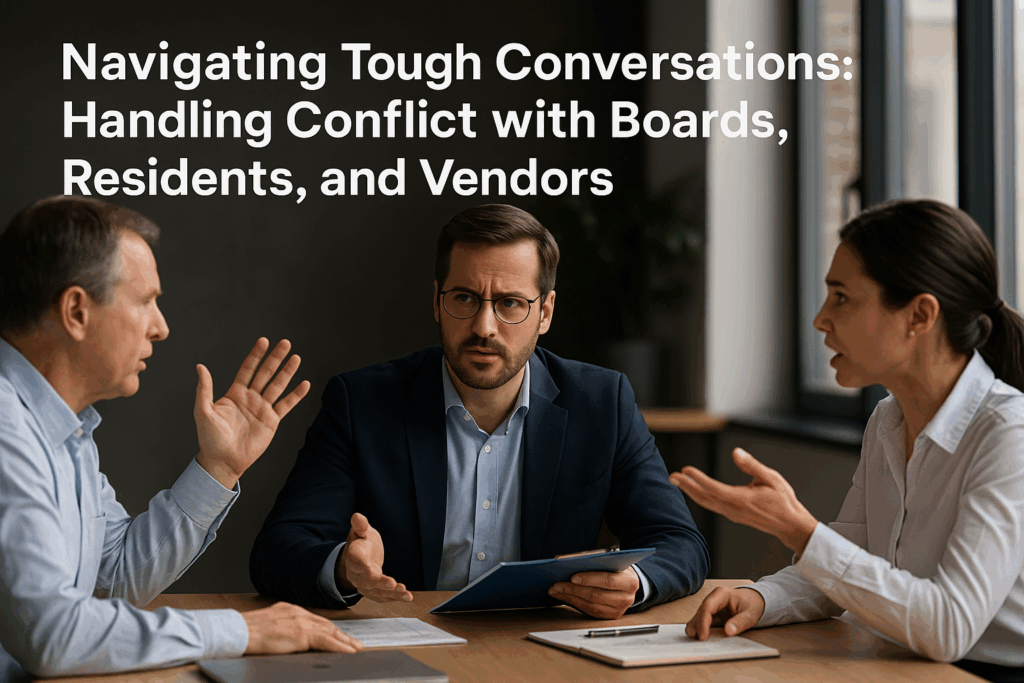Conflict is a reality in community association management. Whether you’re a new HOA manager or a seasoned manager, you’ll face tough conversations with boards, residents, and vendors. The key to success isn’t avoiding conflict, but knowing how to resolve it with professionalism, empathy, and clarity.
Handled effectively, conflict resolution not only solves the problem at hand but also builds trust, strengthens board relations, and improves vendor management.
Why Conflict Resolution Matters in HOA Management
For managers, each tough conversation has lasting impacts. How you handle it can:
- Build or break trust with your HOA board of directors.
- Improve or damage relationships with residents.
- Strengthen or weaken vendor partnerships.
Approaching difficult situations with preparation and professionalism sets great community association managers apart from average ones.
Common Conflict Scenarios for Managers
- With Boards: Budget disagreements, conflicting priorities, or different interpretations of governing documents.
- With Residents: Complaints about rule enforcement, assessments, noise, or neighbor disputes.
- With Vendors: Scope of work issues, performance concerns, or billing disputes.
By anticipating these scenarios, managers can apply proven conflict resolution strategies to keep discussions productive and solutions focused.
6 Strategies to Handle Tough Conversations
- Practice Active Listening
- Let people feel heard. Acknowledge concerns and repeat them back to confirm understanding. Active listening can quickly de-escalate heated situations
- Stay Neutral and Professional
- Your role is to facilitate, not take sides. Staying calm, factual, and impartial positions you as a trusted problem solver in the community.
- Use Governing Documents and Contracts
- When emotions run high, turn to the association’s rules, policies, or vendor contracts. This ensures decisions are fair and defensible.
- Communicate Clearly and Without Emotion
- Avoid vague or personal language. Instead of “the board doesn’t like this,” say: “Per the governing documents, here’s the required process.”
- Offer Solutions and Alternatives
- Don’t stop at identifying the issue. Provide clear options or next steps to keep the conversation moving forward.
- Know When to Escalate
- Some conflicts require board votes, legal input, or mediation. Recognizing when to escalate protects you and the association.
Turning Conflict into an Opportunity
Strong conflict resolution helps HOA managers:
- Strengthen board relations by acting as a confident advisor.
- Earn respect from residents by being consistent and fair.
- Improve vendor management through accountability and clarity.
When tough conversations are handled well, they transform from stressful moments into opportunities to demonstrate leadership and professionalism.
Final Thoughts
The best community association managers aren’t those who avoid conflict, but those who navigate it with skill. By practicing effective conflict resolution strategies, managers can turn challenges into opportunities for growth, strengthen board and vendor relations, and foster more harmonious communities.

